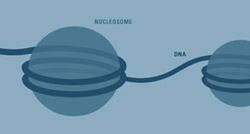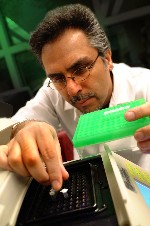
Appliances that need no cables or batteries but operate purely on power generated from their surrounding vibrations could save manufacturers and consumers large sums of money, according to scientists at the University of Southampton.
Professor Neil White and his colleagues at the University’s Department of Electronics and Computer Science realised three years ago that sensors were being used in increasingly diverse application areas where physical connections to the outside world were d

Researchers from St. Petersburg have invented a way to check the viability of grains and seeds of agricultural plants without prior germination. The scientists assume that injuries of the germ and tissues of seeds can be revealed through X-ray photomicrography with the help of computer recognition system. This methodology allows determining the quality of wheat, barley, oats, rye and other crops seed grain.
The yield of agricultural cultures depends on viability and quality of seed grain. Re

Forget sharp metal picks or X-rays-in the future, your dentist may search for cavities using a painless laser-based technique developed at U of T that can detect cracks or defects at an early stage of development. v “Using the technique, we can see all the way to the pulp-more than five millimetres inside a tooth,” says Professor Andreas Mandelis of U of T’s Department of Mechanical and Industrial Engineering. “It can reveal suspicious regions invisible to the naked eye below the surface of

Researchers from the University of Pennsylvania and the University of Sheffield report in the Feb. 21 issue of Science that they have created tree-like molecules that assemble themselves into precisely structured building blocks of a quarter- million atoms. Such building blocks may be precursors to designing nanostructures for molecular electronics or photonics materials, which “steer” light in the same way computer chips steer electrons.
Virgil Percec, the P. Roy Vagelos Chair and Profes

B cell chromatin study strikes physiological chord
Some cells sing with the chorus, while others unwittingly achieve fame on their own. The immune system’s B cell is a true diva that spends its early days preparing for the ultimate audition. Its repertoire of possible antibodies to invading microbes totals 50 million. For the immune system, this repertoire means the difference between destroying a potentially lethal antigen or not.
Since the late 1970s, the genes for makin

Dr. Kouros Motamed is studying endothelial cells where they live, in the complex environment that provides, not only support and structure, but regulation and direction.
As he studies these cells that line blood vessels, this vascular biologist at the Medical College of Georgia focuses on the proteins and growth factors that regulate their normal processes, including proliferation, differentiation, migration and death.
He wants to better understand how these cells interact with th

– new calculation confirms standard model of particle physics. Contribution of hadronic vacuum polarization determined with unprecedented accuracy. The magnetic moment of the muon is an important precision parameter for…
Technique may prevent formation of unwanted waves that siphon off needed energy. Heating plasma to the ultra-high temperatures needed for fusion reactions requires more than turning the dial on a…

An international team of astronomers, led by researchers from the Astronomical Observatory of the University of Warsaw, have identified a new class of cosmic X-ray sources. The findings have been…

Antibody that Neutralizes Inhibitory Factors Involved in Nerve Regeneration Leads to Enhanced Motor Function after Acute Spinal Cord Injury. Researchers at 13 clinics in Germany, Switzerland, the Czech Republic and…

How the body’s natural killer cells could fight leukemia. Every year, some 13,000 people in Germany are diagnosed with leukemia. Despite intensive chemotherapy, around one in two of them die….

… eco-friendly reactor converts air and water into ammonia. Producing enough ammonia to feed the world comes with a large carbon footprint;. process described in new UB-led study could help…

How simulations help manufacturing of modern displays. Modern materials must be recyclable and sustainable. Consumer electronics is no exception, with organic light-emitting diodes (OLEDs) taking over modern televisions and portable…

“Neurons that fire together, wire together” describes the neural plasticity seen in human brains, but neurons grown in a dish don’t seem to follow these rules. Neurons that are cultured…

The quest for sustainable energy solutions has been a major focus of scientific research for decades. Solar energy, a clean and renewable source, has emerged as a promising alternative to…

With a processing speed a billion times faster than nature, chip-based laser neuron could help advance AI tasks such as pattern recognition and sequence prediction. Researchers have developed a laser-based…

New technology could remotely identify various types of plastics, offering a valuable tool for future monitoring and analysis of oceanic plastic pollution. Researchers have developed a new hyperspectral Raman imaging…

Artificial Intelligence (AI) has established a strong presence across industries, large and small. The “VoBaKI” research project has empowered small and medium-sized enterprises (SMEs) with an innovative tool to independently…